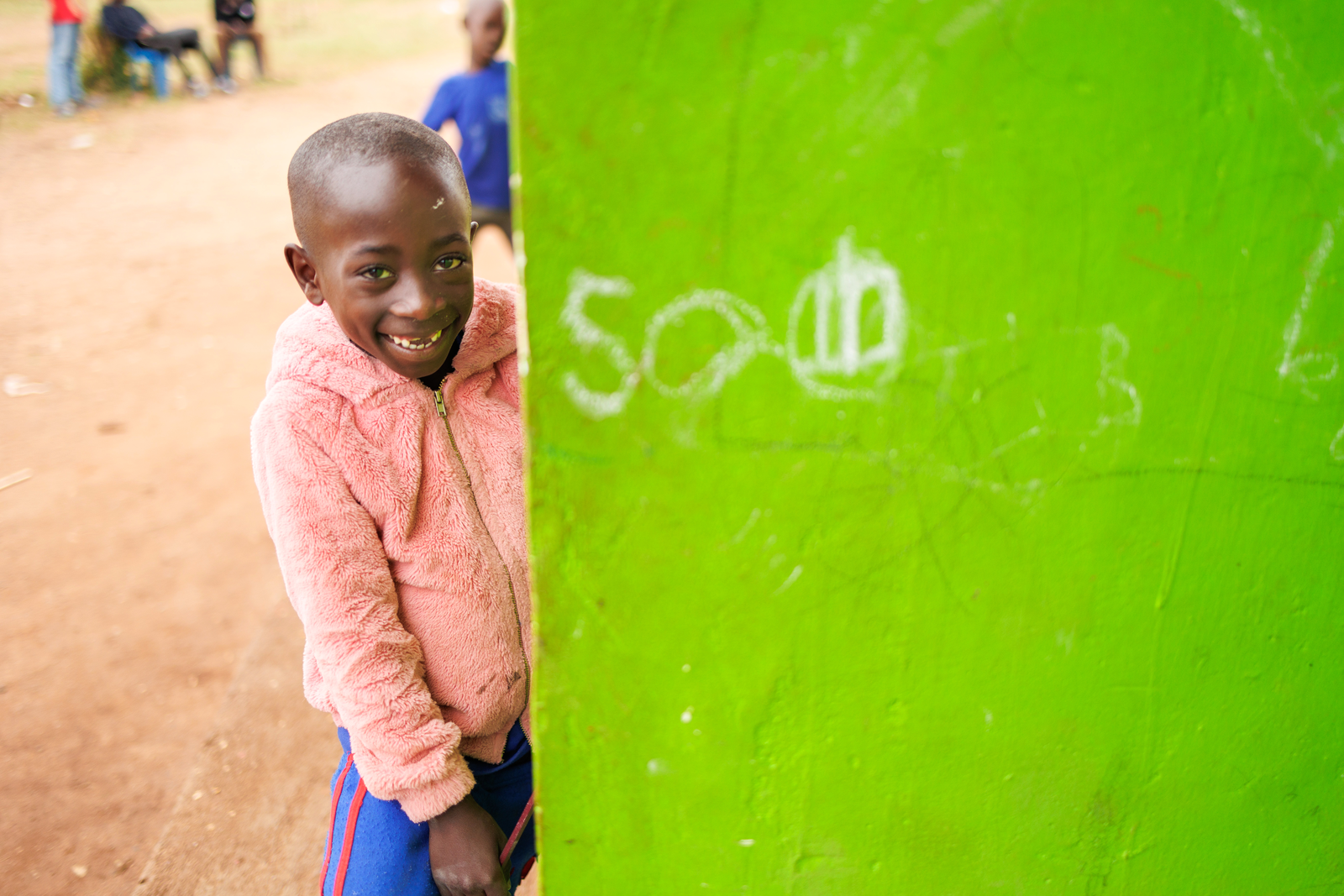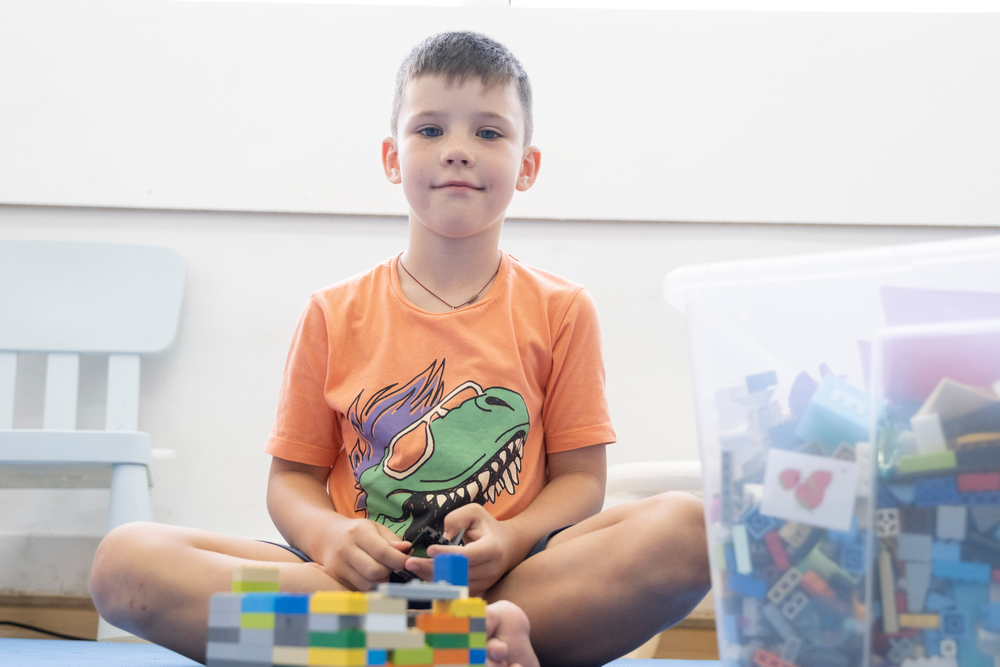
One year on: from war in Syria to school on a small island in Scotland
Refugees and internally displaced people
The school in the town of Rothesay has been at the heart of the community support for refugee families who fled from the war in Syria.
One year on from their arrival in Scotland, Syrian children are settling into life on a small island where a school has been at the heart of a warm response by islanders to welcome refugees.
More than 4000 Syrian refugees arrived in the United Kingdom during the first year of the government’s resettlement scheme.
Britain is committed to taking 20,000 refugees by 2020 following a public outcry over the dreadful scenes of refugees drowning in the Mediterranean Sea as they tried to cross to Europe.
A total of 4162 refugees have now been brought to Britain, with 1516 resettled in Scotland, which has accepted more refugees than any other part of the UK.
Of Scotland’s 32 councils, 29 are supporting refugees – the other three are also now committed to housing and educating Syrians who’ve fled the war.
In September 2015, Argyll and Bute Council became one of the first local authorities in Scotland to respond to the humanitarian crisis by agreeing to resettle refugee families through the UK Home Office’s Syrian Vulnerable Persons Relocation Scheme.
The first 10 families were resettled on the Isle of Bute on December 3, 2015, followed in February 2016 by a further five families.
The Syrian families come from Damascus, Aleppo, Homs and Daraa, while others are from rural areas.
By October there were 18 refugee families on the island – including 34 children. There was also a baby born in April and more are due to be born on the island over the next few months.
Argyll and Bute Council said all school and preschool age children attend Rothesay Joint Campus. A council spokesperson added: “There are 26 Syrian pupils at the school with seven in the nursery, 19 in the primary and six in the secondary. The involvement of the school has very much been at the heart of the response and the support to the refugee families.
“Reflecting the school’s role in the community and acknowledging that the decisions our families made to come to the UK were to afford their children a better life.
“Before arrival, school pupils were very active in their preparations, increasing their awareness and understanding of the situation is Syria, what it means to be a refugee and forced to leave your home, and an understanding of Muslim and Arabic culture.
“School pupils also produced a short film, reaching out and welcoming their new friends. This film has been shown to all of our families on arrival.”
The council added that the head teacher, teaching staff and senior pupils have been an integral part of the island’s support team, meeting families at the airport and travelling with them all over to Bute.
Additional resources have been put in place to support learning. These include additional staffing at the school and iPads.
All the Syrian children have a Universal Child’s Plan – which identifies their support requirements, outlines targets and necessary actions – and educational psychology has been given, as and when required.
The council said: “The scale of work undertaken to support pupils arriving with English as an Additional Language (EAL) has strengthened the overall provision at Rothesay Joint Campus. It has enabled the school to develop a focused strategy and to implement effective systematic processes to engage and support children and young people with EAL.
“Progress of all new pupils is continually monitored to ensure that each child is working to their full potential.”
Although there are no mosques on Bute, some refugees have been able to visit Edinburgh Central Mosque and speak with the Imam there.
The families are able to use a “pop up” community centre for Friday prayers and have organised this weekly event themselves, with one of the group taking on the role of Imam.
Families have also been able to visit the Glasgow mosque and have combined this with shopping trips to the city.
A council spokesperson said: “All of the families are Sunni Muslims, though some are more secular than others and not all choose to pray in the community centre. Families have also been able to participate in the Muslim festivals of Ramadan and Eid al-adha and are encouraged to support and organise their own religious needs.”
The island’s support model has caught the attention of other councils and agencies working with refugees and Bute was one of only three Scottish authorities to be evaluated by the United Nations refugee agency UNHCR.
The council is also looking forward to a visit from the Finnish Education Evaluation Centre who are interested in the success of Rothesay Joint Campus.
A council spokesperson added: “Over the next few months we hope to resettle more families bringing in relatives and creating a strong and resilient Syrian community embedded in the local community.”
The Convention of Scottish Local Authorities (COSLA) has been co-ordinating and assisting the resettlement of Syrian refugees in Scotland.
A COSLA spokesperson said: “The scheme has been a success in terms of the number of people who have been received in Scotland, the number of local authorities who have become involved and the positive responses from local communities.
“Feedback from the refugees themselves is also mainly positive. However, supporting integration is a long-term project and so we are grateful that councils are resourced to work with the refugees over a five-year period.”
Scotland has earned a good reputation for supporting refugees from around the world over the past few decades, including people from the Vietnam war, Bosnians, Iraqis, Kurds and refugees from Afghanistan, as well as dozens of other nationalities.

Nicola Sturgeon, Scotland’s First Minister, said more would be done by Scotland to welcome Syrian refugees and support children through education.
Ms Sturgeon said: “The efforts of local authorities, their partner organisations and local communities are to be commended in their work to make Scotland a safe and welcoming place for migrants, asylum seekers and refugees.
“However, the refugee crisis has not gone away. People are still fleeing the continued violence in Syria and other countries. Scotland has shown that it can help, but we need to do more.
“I have been moved by the plight of child refugees and we must ensure those with family in the UK are reunited with them as quickly as possible. That is what we and our local authority partners want to happen.
“The Scottish Government and COSLA will be convening a roundtable to take forward this work and ensure that we all do the best we can for these children, who need a safe place, where they can get back into education, rebuild their lives and fulfil their potential.”
More news

Theirworld’s mission to give children in crises a safe place to learn
